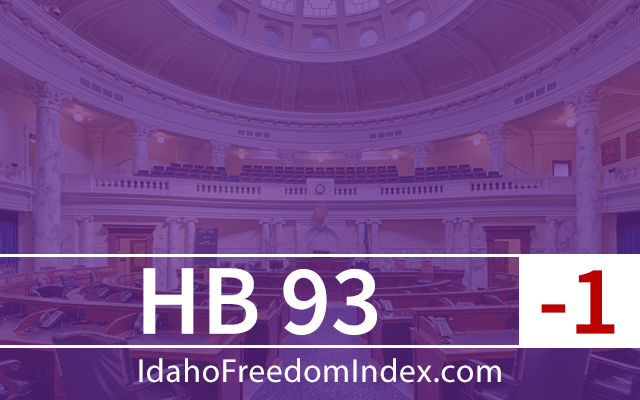


Bill description: HB 93 would give the State Board of Education authority to provide funding to nontraditional educator preparation programs for training teachers.
Rating: -1
Does it create, expand, or enlarge any agency, board, program, function, or activity of government? Conversely, does it eliminate or curtail the size or scope of government?
Before teaching at a public school, an educator must receive a certification from the state Board of Education. To become certified, a person must hold a bachelor's degree from an accredited college or university and complete all the general education requirements there. To teach in an elementary school, this education must include at least 24 credits in the foundation of teaching. The teacher must also haver recommendation from the university or two years of teaching experience completed during their education. A certificate to teach in a secondary school requires at least 20 credits on the foundations of teaching in addition to the recommendation or experience. Additionally, teachers must have specific education in teaching fields or an endorsement to teach specific subject areas, such as history, mathematics, language arts, or music. Applicants for a certificate must also pass a content exam covering the subjects they will teach.
Idaho does allow for a handful of alternate routes to certification as a teacher. One route is as a content specialist, for individuals who are highly trained in one area—such as a chemist, a mathematician, or a journalist—and who take an accelerated course in the foundations of teaching. In the 2017-18 school year, 510 teachers held a certificate through this route. Another option is for a person to go through a nontraditional route such as the American Board for Certification of Teacher Excellence (ABCTE) or Teach for America. ABCTE allows individuals to complete an online teaching program, at which point they can receive an interim certificate for three years and then complete a two-year mentorship while teaching. A teacher who has completed all these requirements can receive a full teaching certificate.
Teach for America runs a similar program, where students undergo an intensive study in the foundations of education and then receive a three-year interim certificate. After completing a mentorship, the teacher who uses this route could obtain a full certificate.
HB 93 would allow the state Board of Education to provide funding to nontraditional educator training programs such as Teach for America and ABCTE. These training programs would have to be in a contract with a local education agency, such as a charter school or public school district. Additionally, any funding the state board provides to the training program would have to be matched dollar for dollar by outside funding sources.
Alternative certification programs such as these are growing in popularity and in numbers. In the 2014-15 school year, just 2.93 percent of teachers in the state held alternative certificates, while in the 2017-18 school year, 5.51 percent did. This is largely a result of Idaho’s artificially high barrier to entry into the teaching profession as a fully certified teacher, forcing teachers to take alternative routes to certification.
The state Board of Education and many others have pointed out that there is a shortage of teachers statewide. This is largely due to the fact that not enough individuals can enter the profession, though the high attrition rate of Idaho teachers plays a part as well.
Butsubsidizing private programs is not the avenue the state needs to take to increase the number of quality teachers in the state. Giving the state Board of Education the authority to administer grants to private education programs will not resolve the underlying problem of artificially high requirements for certification as a teacher.
(-1)
Update: This analysis was updated on 2/26 to include more information.


